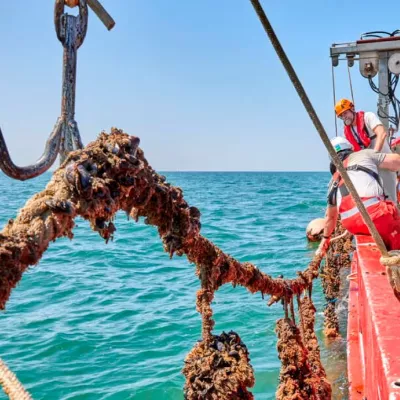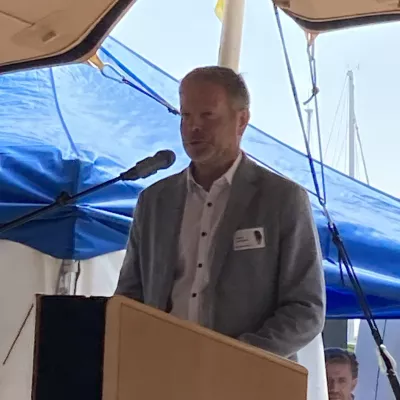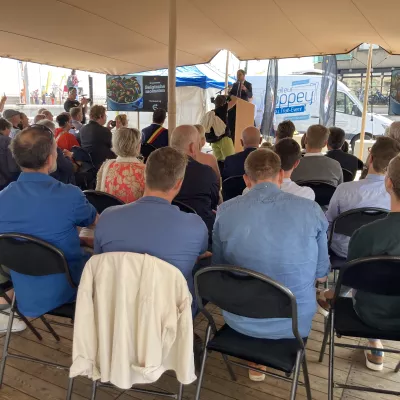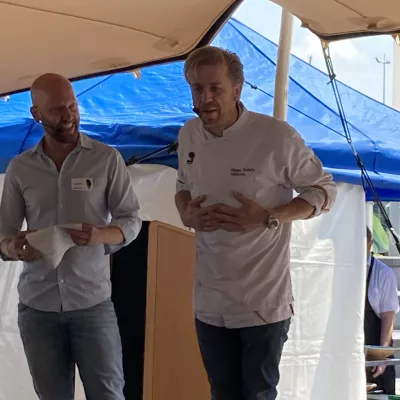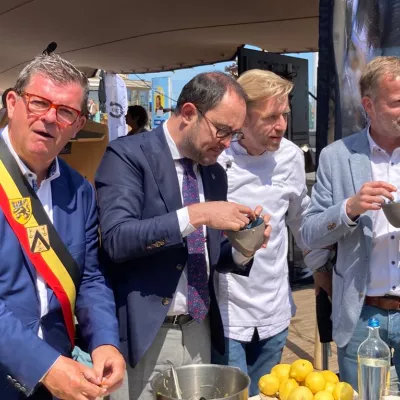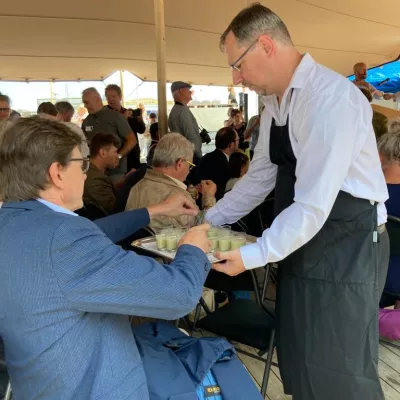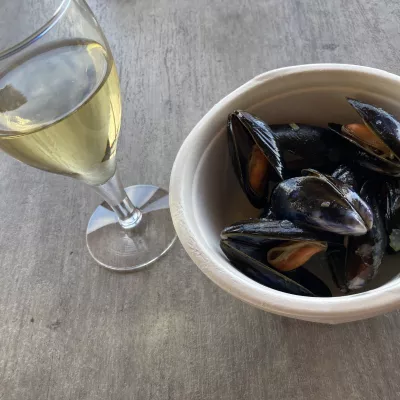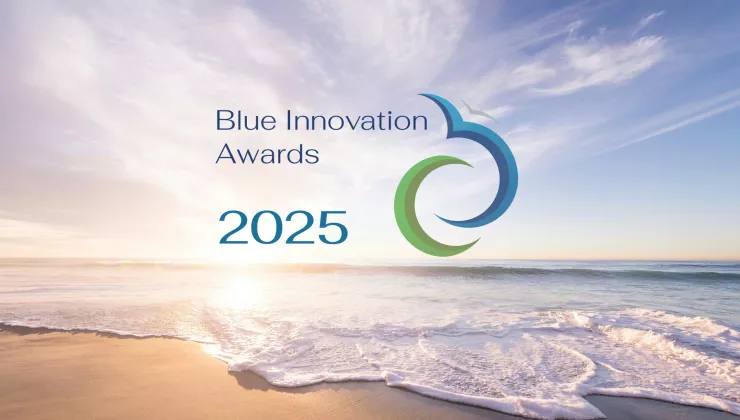First national holiday with Belgian mussels
Last week, Belgian mussels were harvested for the first time at Westdiep Sea Farm. The intention is to collect about 10 to 15 tons in the coming months. On July 21, the first harvest was presented to a limited audience and with great media interest in Ostend.
Attention to aquaculture
Bart Tommelein, Mayor of Ostend, highlighted the importance of aquaculture and the blue economy for the economic development of Ostend and the surrounding area.
Stefan Goethaert, CEO of Colruyt Group, emphasized that this is only the beginning and that extra mussel lines will be installed so as to produce more next year.
Vincent Van Quickenborne, Belgian minister for the North Sea, pointed out that the country with the largest mussel consumption in the world now finally has its own mussels.
Time to taste
All participants were given the opportunity to try the Belgian mussels. Seppe Nobels, chef of Academy Instroom in Antwerp, had come up with various preparations for this occasion.
The star chef especially praised the firm structure and juiciness of the mussels. He also gave the tip to add a small lump of butter to get a fuller taste in the mouth.
Would you like to experience the taste of the Belgian mussels yourself? For the time being, they are exclusively available at the Cru fresh produce markets.
Background
The Belgian mussels are cultivated at Westdiep Sea Farm, approximately 3 miles off the Belgian coast. The mussels grow on ropes anchored to the bottom through buoys. As they therefore hang in the water, they are called hanging culture mussels.
At the moment, about a quarter of the available space is in use. Colruyt Group is gradually expanding its sea farm. The goal is to eventually produce oysers and seaweed at the sea farm as well.
About SYMAPA
The SYMAPA research project, which stands for Synergy between Mariculture and Passive Fisheries, explored the possibilities to combine the cultivation of mussels, oysters and seaweed at sea with alternative sustainable fishing methods
The project was a collaboration betwee companies such as Colruyt Group, Brevisco, AtSeaNova and Vlaamse Visveiling on the one hand, and knowledge institutions such as the Flanders Research Institute for Agriculture, Fisheries and Food (ILVO) and the Royal Belgian Institute for Natural Sciences (RBINS) on the other.
SYMAPA was facilitated by Blue Cluster and received financial support from VLAIO (Flanders Innovation & Entrepreneurship).
